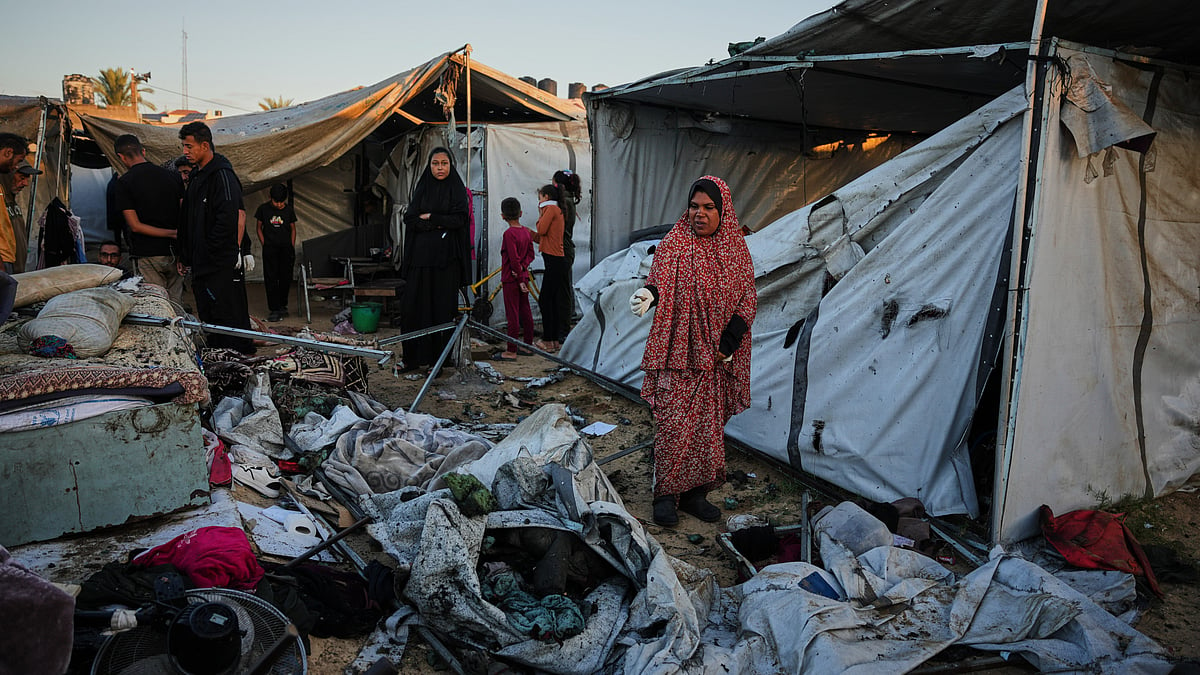World
Israel frees five Palestinians amid continuing bloodshed in Gaza
Thousands of Palestinians remain jailed in Israel, many without charge, in what rights groups call arbitrary detention

Israel on Monday, 3 November, released five Palestinian prisoners under a fragile ceasefire deal with Hamas — a brief flicker of relief in a land weary of anguish. The men, freed as dusk settled over Gaza, were taken to Al-Aqsa Hospital in Deir el-Balah for medical checks, Al Jazeera’s Hind Khoudary reported from outside the facility.
At the hospital gates, scenes of heartbreak and hope unfolded side by side. Families wept as they embraced their sons, while others clutched fading photographs, desperate for any word of those still missing. “This is the first time since the ceasefire that Israeli forces have released unidentified Palestinian prisoners,” Khoudary said — her words underscoring both the rarity and the restraint of the moment.
Thousands of Palestinians remain behind bars in Israel, many detained without charge under what rights groups denounce as arbitrary and punitive incarceration.
Earlier in the day, Gaza’s health ministry announced that it had received the remains of 45 Palestinians from Israel via the International Committee of the Red Cross, raising the total number of bodies returned under the ceasefire to 270.
Published: undefined
Forensic teams have so far identified 78 of them and continue their somber work “in accordance with approved medical procedures and protocols”, the ministry said, promising to return the remains to families once the process is complete.
Officials have previously alleged that many of the bodies bore chilling signs of torture — bound hands, blindfolds, and severe facial injuries — and were returned without identification tags. The transfers form part of the first stage of a ceasefire arrangement brokered by Turkiye, Egypt, and Qatar, with the quiet involvement of the United States, combining prisoner releases with the repatriation of bodies.
From Deir el-Balah, Khoudary reported that “many of the bodies returned show signs of torture”, even as families continue their painful search through morgues and hospitals for missing loved ones.
But even amid the uneasy calm of a truce, Gaza’s skies remain restless. In southern Gaza, three Palestinians were killed north of Rafah on Monday, a source at Nasser Medical Complex told Al Jazeera Arabic. Israel’s military later claimed it had targeted individuals who “crossed the yellow line,” describing the strikes as a response to ceasefire violations — a claim that could not be independently verified.
Elsewhere in Gaza City, a child was among three people wounded by Israeli fire in the east of the city, according to Al-Ahli Arab Hospital. Reporter Tareq Abu Azzoum said Israel continues to deploy quadcopter drones that drop grenades on half-collapsed buildings — actions that local authorities decry as blatant violations of the truce.
According to Gaza’s Government Media Office, Israel has committed more than 125 breaches of the ceasefire agreement since it took effect on 10 October. Officials warn that these repeated incursions threaten to shatter the tenuous quiet and plunge the region back into the chaos of open war.
In the shadow of fragile peace, Gaza breathes uneasily — suspended between the relief of returning sons and the dread of what may come next.
Published: undefined
Follow us on: Facebook, Twitter, Google News, Instagram
Join our official telegram channel (@nationalherald) and stay updated with the latest headlines
Published: undefined